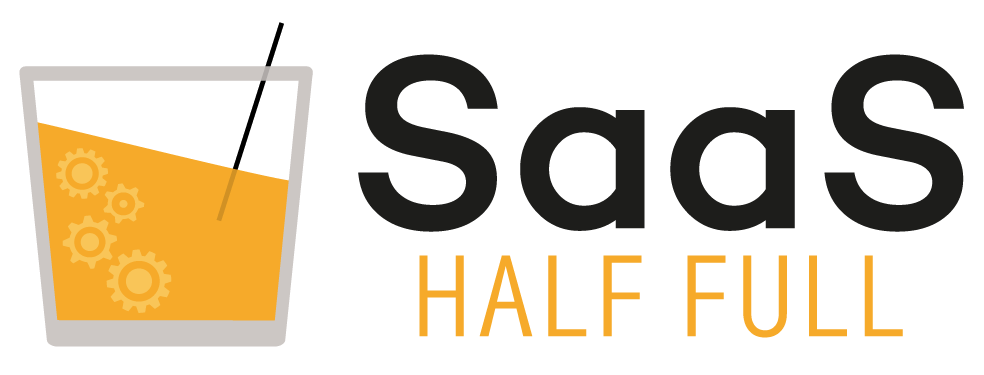When the COVID-19 pandemic struck and B2B marketing and sales went remote, it spawned a lot of new questions with which companies had to contend. Was it the right time to sell products? Could they even afford to retain their staff? Companies required B2B data to navigate a new normal, but where would it come from?
In this episode of SaaS Half Full, host Lindsey Groepper chats with Jim Benton, CEO at Chorus.ai, who joined the company the day the world locked down. Jim quickly pivoted his work style to lead a team he’s never met, and developed the brilliant idea to share his company’s data in a unique format to help other struggling sales leaders.
New Job, New Normal
Jim’s first day as CEO was March 16, 2020. That same day, California began its statewide lockdown to combat the spread of COVID-19. Suddenly, Chorus’s newest hire would be onboarding and meeting his team in a digital-only world.
“It was a unique time: you’re making sure your family is in a good spot and if we’re ready to shelter for the unknown. And at the same time, you’re learning to onboard remotely from your house and meet a global company,” Jim said. “And just like everything, you adapt very quickly. I couldn’t imagine doing it any other way now.”
By his tenth day, Jim had met everyone through Zoom sessions, either one-on-one or in small groups. That effort helped him quickly plug into everything the team was doing, and he immediately went to work guiding Chorus’s growth.
Freeing B2B Data
The Chorus platform gathers massive amounts of data from sales conversations and derives insights to improve performance. Jim quickly realized how valuable and crucial their data was as the pandemic began and how it could inform companies how to approach buyers in an intense new environment.
Normally, companies would hoard that kind of valuable data and use it to their own advantage. But Jim and Chorus pivoted. They freed their B2B data.
The platform immediately began producing new insights in real-time as the days of lockdown unfolded. For example, Chorus’s platform showed on February 23, 8% of sales calls had a mention of COVID-19. By March 16 — Jim’s start date — 98% of calls did. “It actually followed very closely to what the U.S. data had shown on cases,” said Jim. “Those are the insights we wanted to unlock. We could see patterns that we thought could help other leaders make really good decisions during a very difficult time.”
As a leader interested in human connectivity, he wanted a human way to share these insights. So began the 8:35 a.m. Daily Briefing, a recorded Zoom event open to anybody wanting to learn from Chorus’s data. Jim invited other sales leaders to join him on the show to discuss their own experience, advice and connect with others.
The program has uncovered fascinating data around concerns like productivity during the pandemic — and it’s led to potentially life-changing insights. “If we gave companies data that showed the go-to-market teams were actually being more productive than maybe the CFO thought, we would protect them from being laid off,” said Jim. “This is what we care deeply about: How do we keep people employed during a very tough period?”
B2B Marketing Insights Go Beyond COVID
While Chorus freely shares its data and insights through the briefing – now evolved into a Weekly Briefing – it’s also produced benefits for itself. Jim shares his company is learning more about how they do business and these insights are getting added to press releases and interviews, which has expanded the company’s role as a thought leader.
It’s also led to more informed sales coaching, especially valuable for new hires spinning up remotely. “We’re able to get down to specific timestamps and say, ‘I really like the way you did this,’ or, ‘Hey, you might want to consider this piece.’,” said Jim. “And, if you’re a new hire, you’re not getting generalized training. You’re able to jump in and say, ‘I want to hear how other reps who have closed certain deals have handled this objection in that deal.’”
Overall, this experience reminded Jim of the importance of connecting with people, even if it’s done virtually. “We put a stat out recently that top performers tell 20% more stories. Well, that’s really important for people to learn, understand what that means and think about the stories that help connect with people, especially when we’re remote,” he said. “If we can help more people to do that type of behavior, that’s good. We’re helping our community.”
For more of Jim’s insights, listen to Episode 302 of SaaS Half Full.
